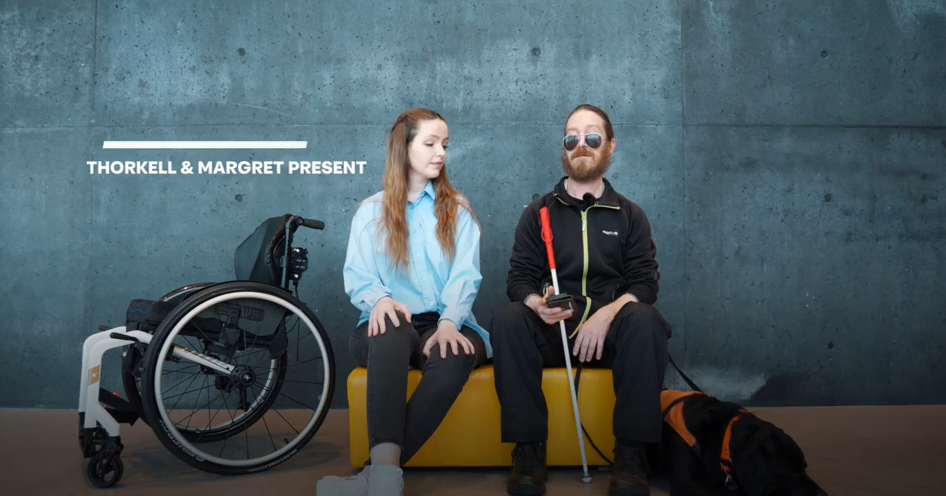Accessible Tourism
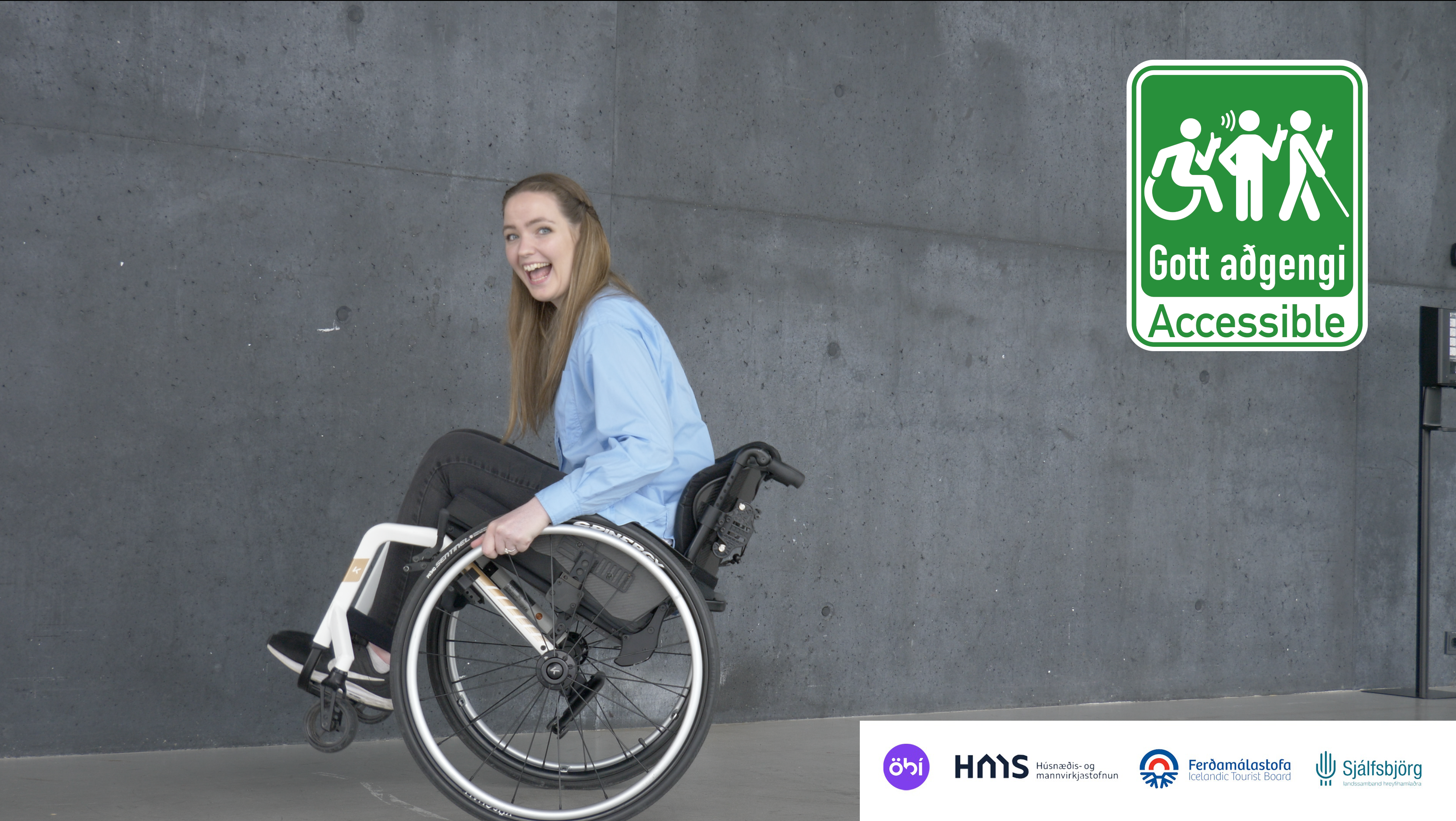 Millions of people around the world are interested in traveling, they have both the time and money to do so, but stay at home because accessibility for the disabled and people with reduced mobility is lacking in many places.
Millions of people around the world are interested in traveling, they have both the time and money to do so, but stay at home because accessibility for the disabled and people with reduced mobility is lacking in many places.
Opportunity for tourism businesses
According to the World Health Organization (WHO), around 15% of the world's population (1 billion people) have some kind of disability. Access for all to facilities and services in tourism is a matter of human rights and should be a part of responsible and sustainable business practices. But good accessibility is not only human rights. It is also a business opportunity for destinations and companies to be able to welcome all visitors, whether they are disabled, elderly or have other special needs.
"According to Icelandic laws and regulations, special care must be taken to ensure that accessibility for disabled people, to a man-made environment, is equal to others."
Accessible Tourism
In cooperation with The Housing and Construction Authority, Sjálfsbjörg (The National Association of People with Physical Disabilities in Iceland) and ÖBÍ (The Icelandic Disability Alliance), The Icelandic Tourist Board has launched a new project called Accessible Tourism, which is intended to improve accessibility in tourism for disabled people.
Good accessibility for disabled people means better access for all.

The project is intended to inform and assist tourism operators in welcoming people, with disabilities, in a safe and responsible way so that facilities and services are in accordance to their needs.
- The project, which is a self-assessment, is based on trust and the willingness to show responsibility in action to best serve this target group.
- The project is intended to assist tourism operators to show in a tangible way that they care about all visitors and that they do their utmost to welcome all.
- Tourism operators who consider themselves to fulfill all the minimum requirements in the self-assessment will receive the project's appropriate logo. There are three logos available; accessibility for the disabled, accessibility for the visually impaired and blind, accessibility for the hearing impaired and deaf.
- Criteria for the disabled/physically impaired are basic criteria. Everyone who participates in Accessible Tourism needs to fulfill, at least, all the minimum requirements involved. In addition, there are specific criteria for accessibility for the hearing impaired and the deaf, and for the visually impaired and the blind, which both are optional.
- Let us show that Iceland is ready to welcome all guests with professionalism and responsibility.
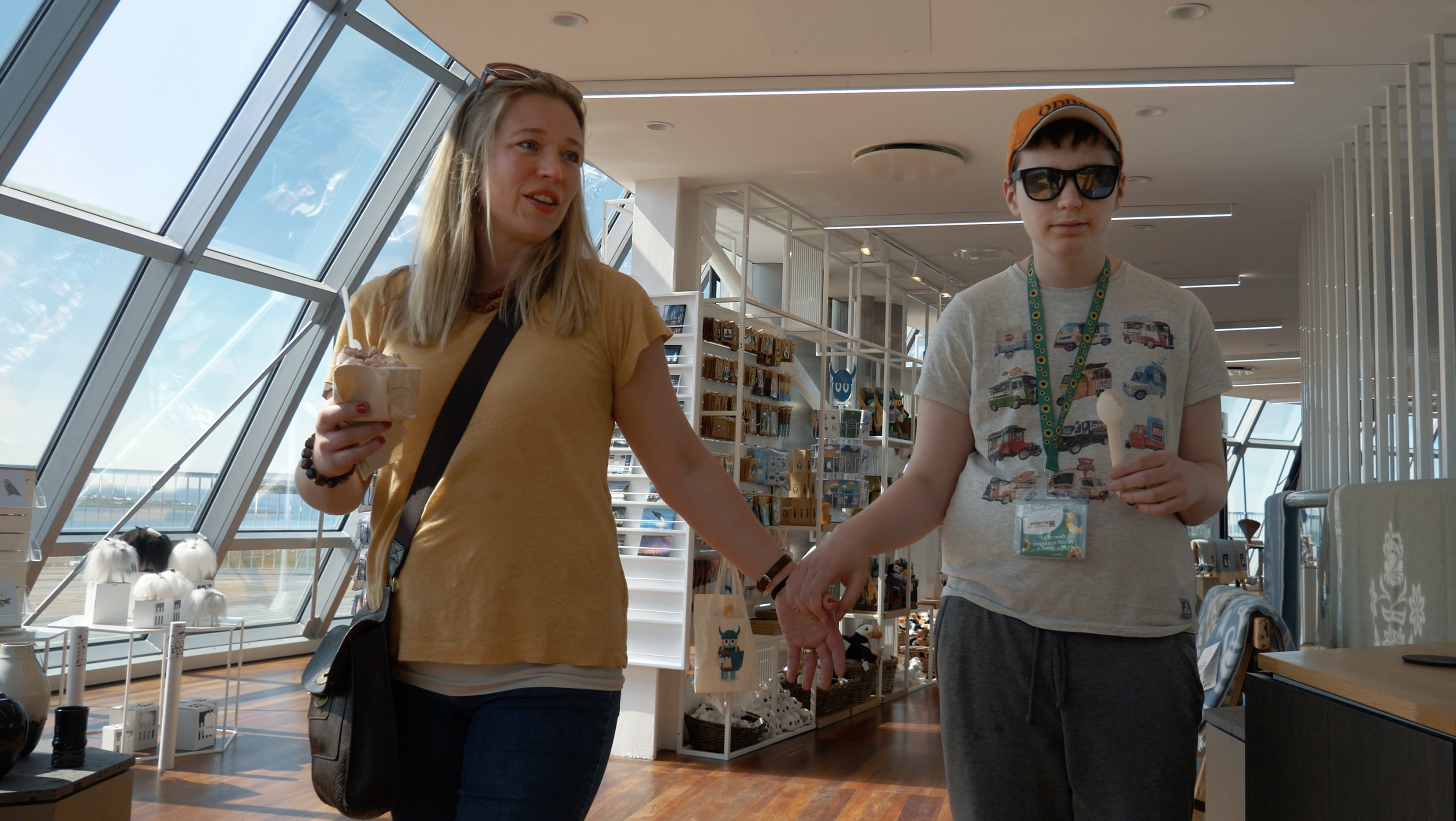
In the beginning, the project is intended for accommodation, restaurants, wellness and swimming pools, conference facilities and museums. Companies in other categories in tourism will be able to participate later. Companies that want to participate must be registered in The Icelandic Tourist Board‘s database.
If the company is not registered in the database, you can request a registration, free of charge.
Further information about the registration can be obtained by sending an email to ferdalag@ferdamalastofa.is

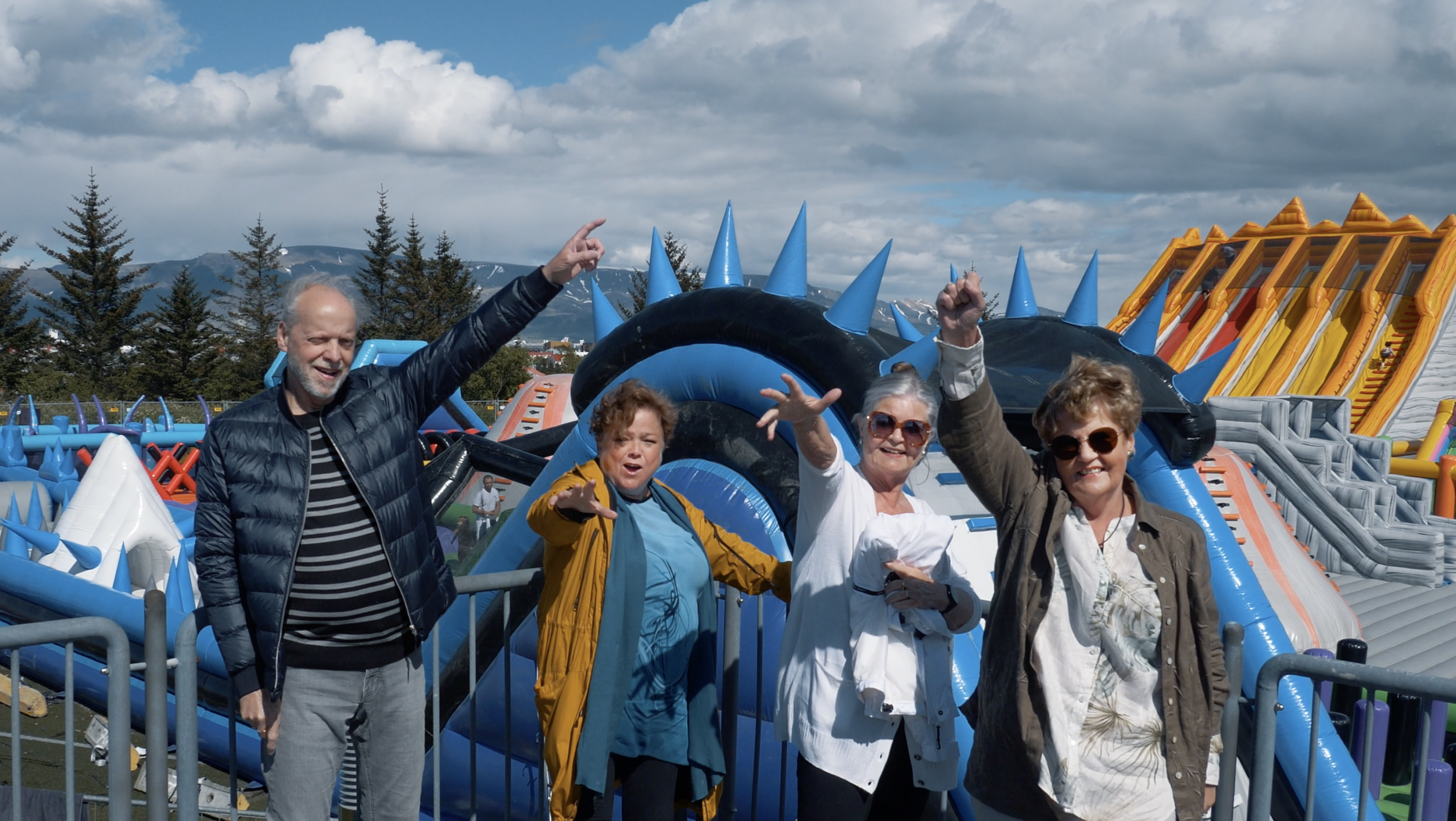 The first step, is to study the criteria carefully, along with the guidelines, and make necessary arrangements within the company. This could take some time.
The first step, is to study the criteria carefully, along with the guidelines, and make necessary arrangements within the company. This could take some time.- Once you have familiarized yourself with the criteria and the guidelines and made all the necessary arrangements to fulfill at least minimum requirements, the next step is to go back to the website of The Icelandic Tourist Board to confirm the participation (see below). The terms and conditions of the project must also be accepted.
- Once the criteria is fulfilled and participation has been confirmed, companies will receive the appropriate logo.
- The display of the logo on the company‘s website is a pledge to the customers that accessibility for people with disability is sufficient.
- Companies participating in the project will be identified with the accessibility logo, e.g. on the websites www.ferdalag.is and www.visiticeland.com.
- If further information about the project is needed please send an email to gottadgengi@ferdamalastofa.is. Regarding specific questions about accessibility, you can contact Sjálfsbjörg, the National Conferderation of Physically Disabled People, info@sjalfsbjorg.is
- Regarding questions about visual accessibility, acoustics, etc. you can contact stefan@obi.is
Participating companies must fulfill at least minimum requirements in the criteria for the disabled. In addition, there are special criteria for accessibility for the visually impaired and the blind and accessibility for the hearing-impaired and the deaf, that companies have the option to add.
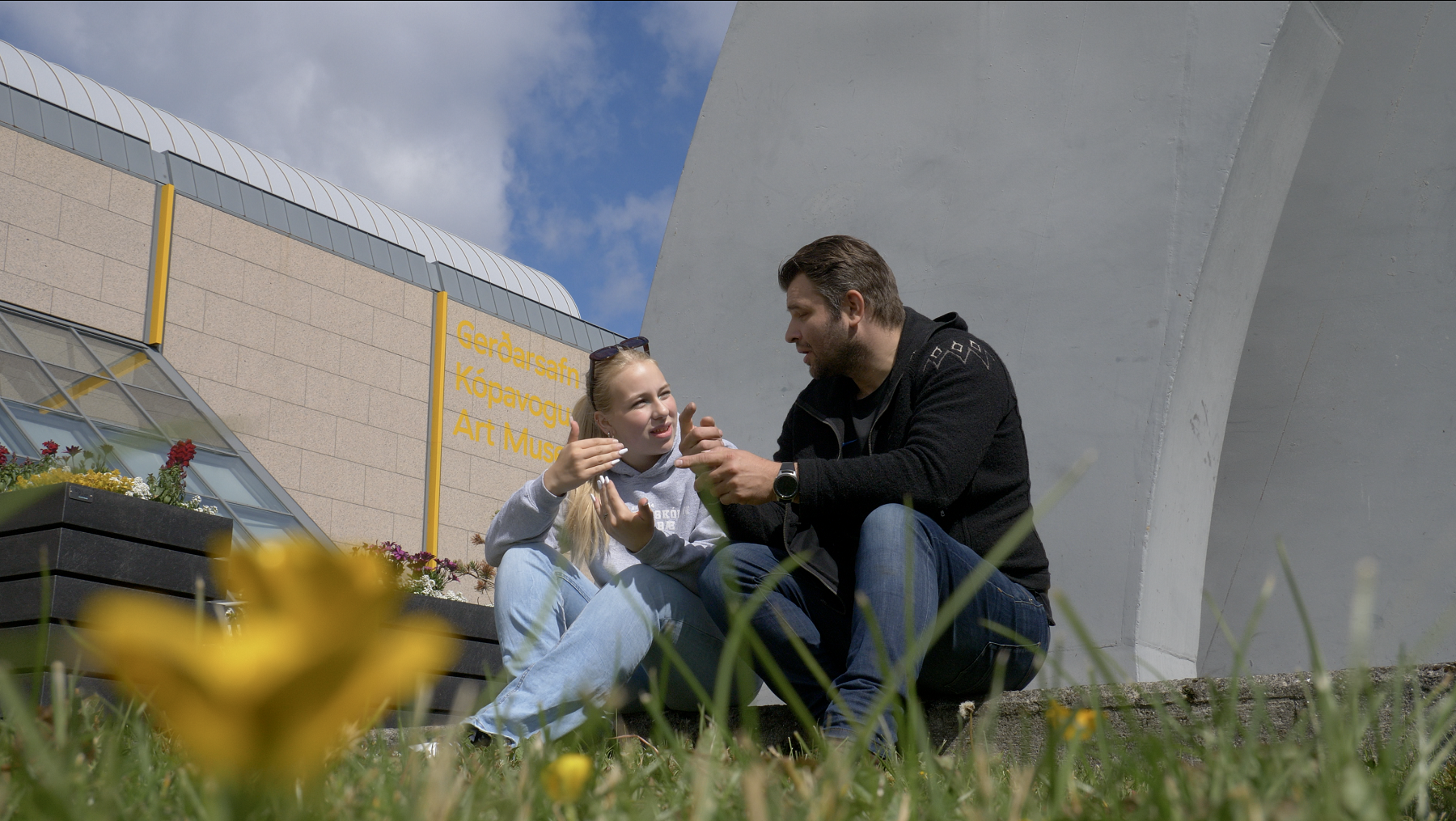 As this is a self-assessment, there is no supervision or inspection if companies meet the relevant requirements. It can be said that the customers do the supervision, as they have the opportunity to send comments to The Icelandic Tourist Board, either to give positive feedback on the performance of participating companies, or to point out what can be done better.
As this is a self-assessment, there is no supervision or inspection if companies meet the relevant requirements. It can be said that the customers do the supervision, as they have the opportunity to send comments to The Icelandic Tourist Board, either to give positive feedback on the performance of participating companies, or to point out what can be done better.
The company in question will receive a copy of all comments that may be received. If the comment is negative The Icelandic Tourist Board reserves the right, according to terms, to remove the accessibility logo from the database, if the company involved does not respond adequately.
As mentioned before, this project is neither a recognition nor certification. The project is primarily a pledge to customers that the minimum standards regarding accessibility are met.
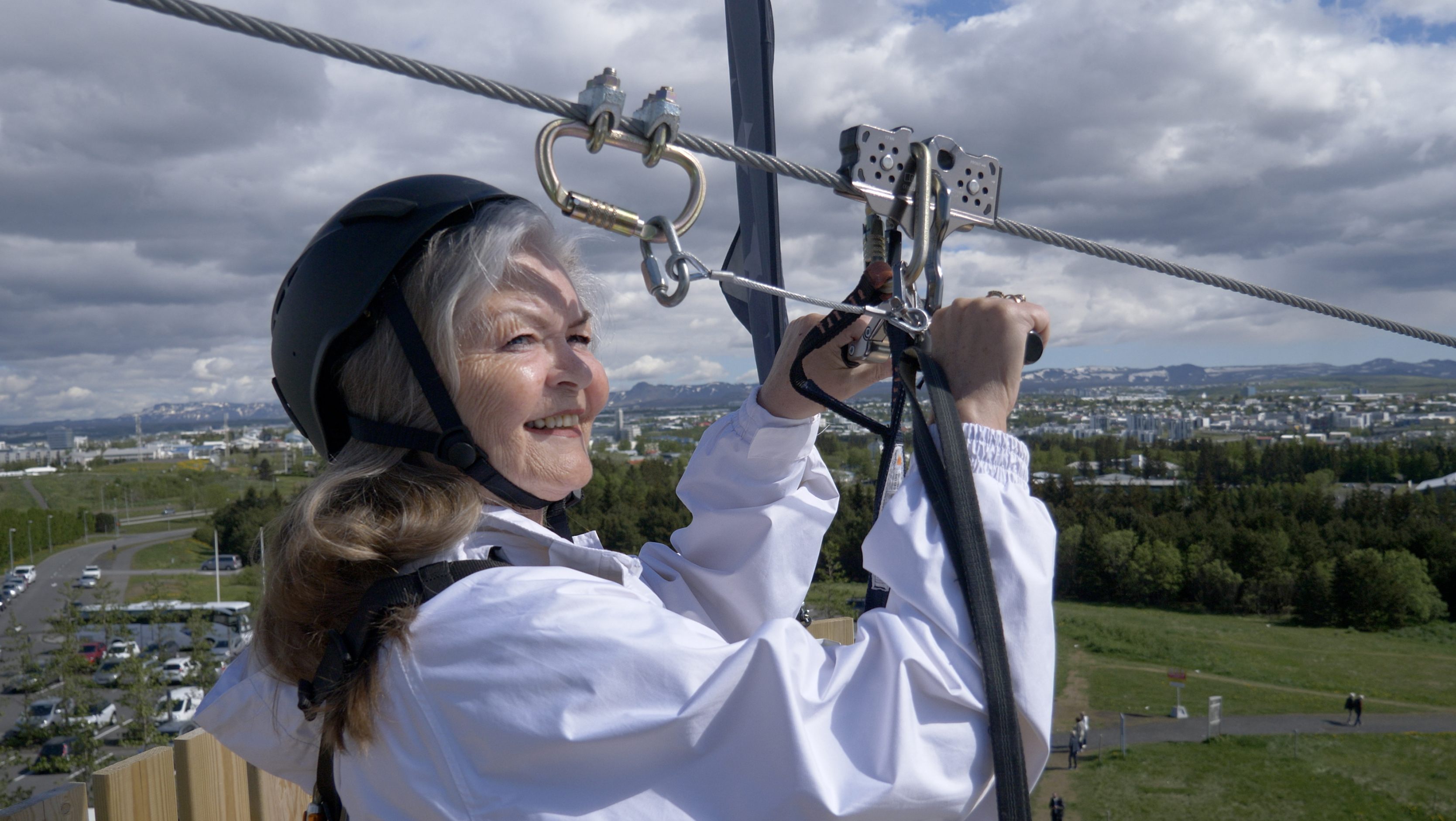 It doesn‘t cost anything to participate in the project but some arrangements or construction might be necessary to meet the minimum requirements and could include some cost for example:
It doesn‘t cost anything to participate in the project but some arrangements or construction might be necessary to meet the minimum requirements and could include some cost for example:
- Time spent to familiarize yourself with the criteria and guidelines.
- Time spent to educate and inform all employees.
- Other measures to be taken at each location.
- Criteria for the disabled/physically impaired (basic criteria).
- Specific criteria for accessibility for the visually impaired and the blind (optional).
- Specific criteria for accessibility for the hearing impaired and the deaf (optional).
Terms and conditions and a pledge:
Guidelines
- Guidelines for the project Accessible Tourism (only available in Icelandic)
Good advice
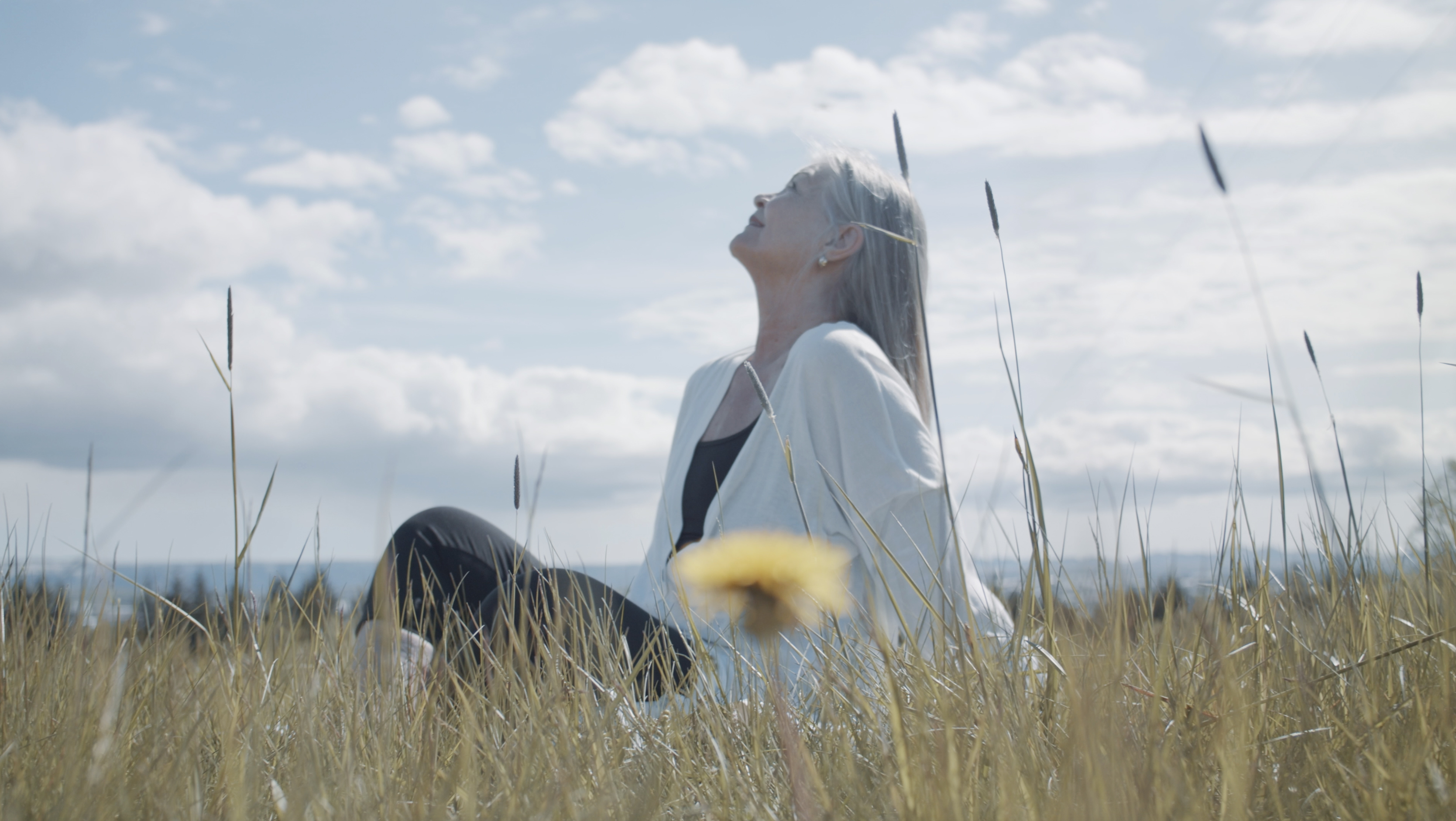 Introduction of the project Accessible Tourism (a recording in icelandic).
Introduction of the project Accessible Tourism (a recording in icelandic).- Accessible Tourism - Good advise for frontline employees (video)
- Good accessibility in restrooms (video from ÖBÍ, The Icelandic Disability Alliance).
- Parking spaces for people with disabilities (video from ÖBÍ, The Icelandic Disability Alliance).
- Customers Services for People with Disabilities (educational video).
- UNWTO Recommendations on Accessible Tourism.
- Equipment and special tools for people with disabilities (for rent at Sjálfsbjörg).
- Most municipalities in Iceland have appointed a special representative regarding accessibility. For further information contact local authorities in each location.
- The Scandic hotel chain focuses on meeting the needs of all hotel guests and therefore offers accessible hotels. On the Scandic hotels website you can find useful information regarding accessibility - can be used as a model.
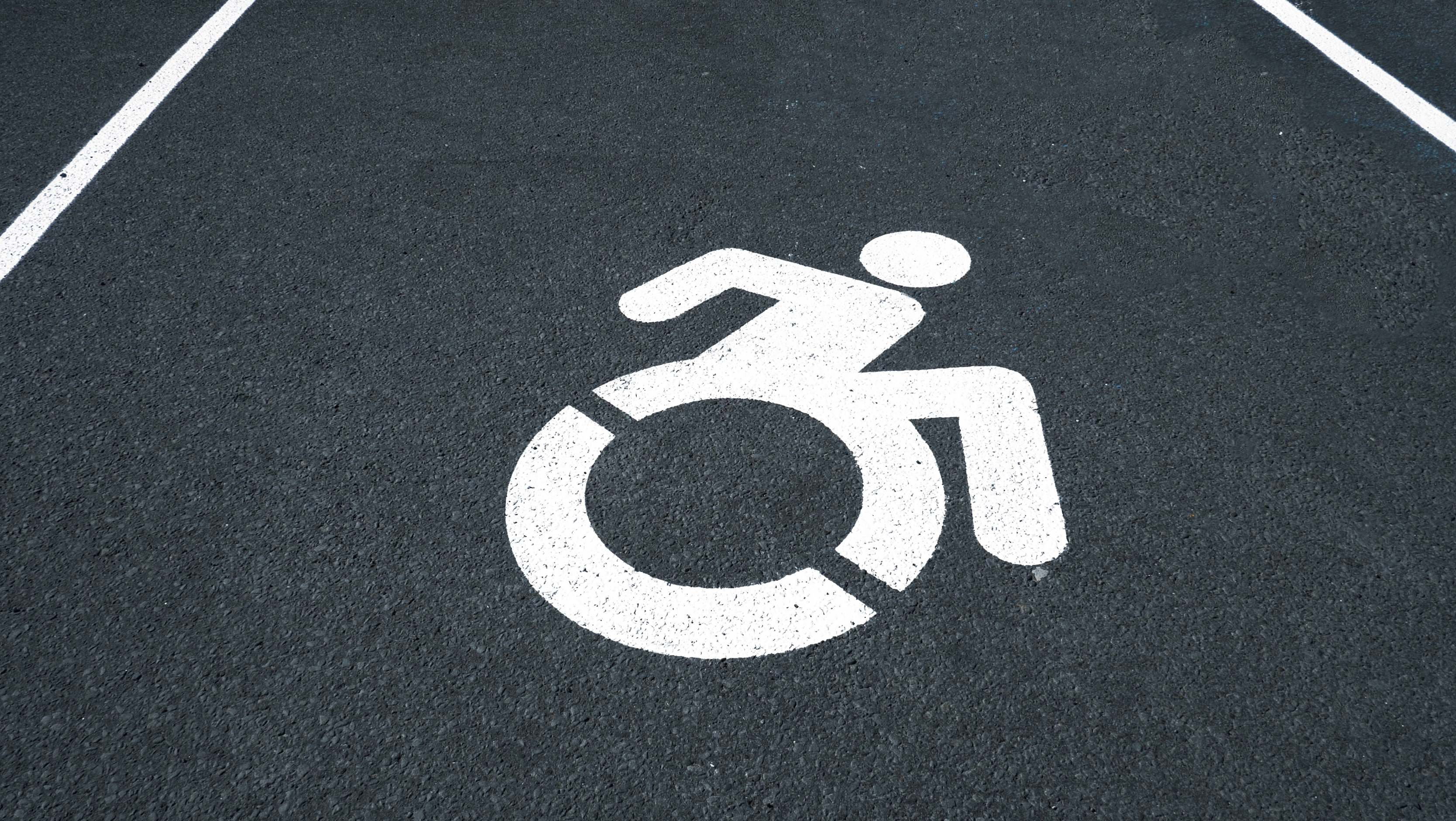 Open form to confirm the participation
Open form to confirm the participation
When the confirmation has been submitted The Icelandic Tourist Board will send the appropriate logo(s).

